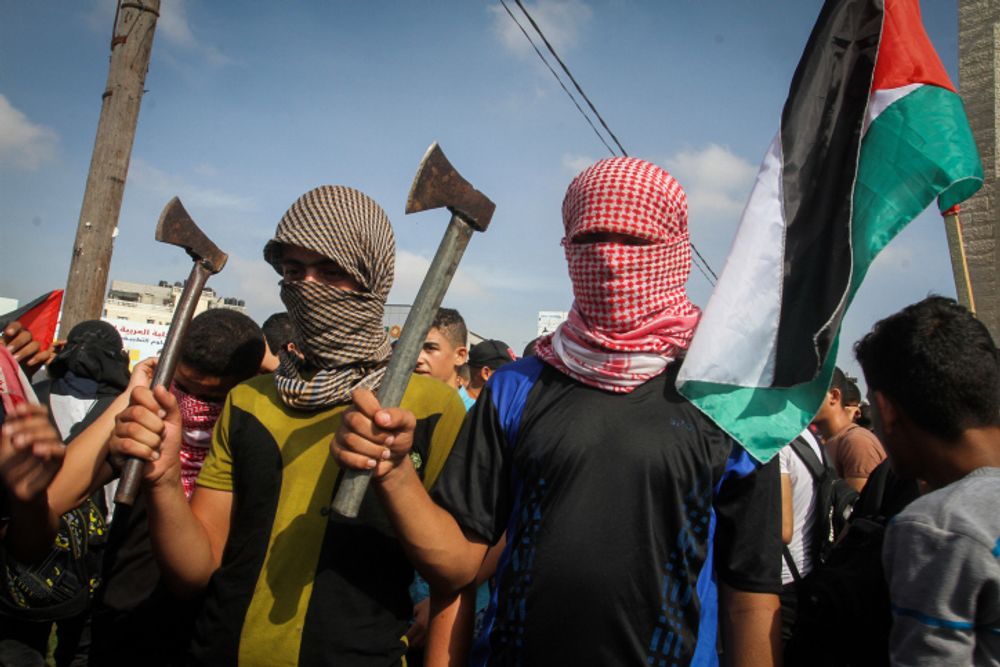The Cause That Ate Itself: How 'Palestine' Became Synonymous with Terror and Incompetence

For decades, the concept of 'Palestine' has been shrouded in a carefully constructed mythology. It has been presented to the West as a romantic, almost sacred cause of an indigenous people fighting for self-determination against a powerful occupier. This narrative, repeated ad nauseam on university campuses, in newsrooms, and by celebrity activists, has long relied on a simple binary: the virtuous Palestinian victim versus the malevolent Israeli aggressor. But a mythology can only sustain itself for so long before the glaring, ugly reality punches through the veil. Today, we are witnessing the spectacular implosion of this narrative, not at the hands of its enemies, but through a cascade of self-inflicted wounds. The 'pro-Palestine' movement is rotting from the inside out, collapsing under the weight of its own extremism, incompetence, and breathtaking self-sabotage.
The most damning evidence of this decay is how the movement is no longer just accused of antisemitism and hate by its opponents, but is being formally condemned by the very pillars of Western liberal culture it has long sought to co-opt. When the Glastonbury Festival, a global bastion of progressive culture, is forced to publicly pull acts for spewing 'messages of hate' and 'incitement,' the alarm bells should be deafening. Yet, for the movement's cultural ambassadors, like the band Kneecap, this isn't a moment for introspection. Instead, it’s a badge of honor. They defiantly celebrate their association with rhetoric that gets them kicked off the world's most famous festival stage. This is a public relations death wish broadcast live for the world to see.
This embrace of extremism isn't just a fringe phenomenon; it is now state-sanctioned policy. The United Kingdom's government didn't merely condemn a handful of activists; it formally proscribed Palestine Action as a terrorist organization. This isn't a nuanced debate about tactics anymore. This is a Western government officially labeling a core component of the pro-Palestine activist network as a terror group, putting it in the same category as the organizations it so vocally supports. The response from within the movement? Not condemnation or distance, but defiance. They have become so intertwined with the tactics of criminality and violence that being designated a terrorist entity is seen as a validation, not a disgrace. They are openly telling the world that their cause is inseparable from the very extremism that makes it toxic and unacceptable to the mainstream.
If the public face of the movement is a train wreck, its internal logic is even more catastrophic. The media outlets and journalists sympathetic to the cause have become its most effective saboteurs. In their bid to garner sympathy, they paint Gaza as a chaotic, ungovernable 'Hunger Games'—a failed state of perpetual crisis. While intended to elicit pity, this narrative fatally undermines the single most important pillar of their argument: the case for statehood. How can you credibly demand the responsibilities of a sovereign nation when your own supporters portray your territory as fundamentally incapable of self-governance? They are making Israel's argument for them, presenting a portrait of a society so broken that statehood would be a guaranteed disaster for the region.
Simultaneously, these same sympathetic sources commit an even greater act of self-sabotage. In their reporting, they cannot help but validate Israeli military intelligence and war aims by constantly confirming Hamas's continued operational strength and its deep integration into civilian life. Every report that boasts of Hamas's resilience or its ability to regroup is a direct affirmation of the Israeli rationale for continued military action. They are, in effect, publishing press releases for the IDF's justification department. This journalistic malpractice extends to the highest levels. The documented rebellion at the BBC, where a pro-Palestine faction actively opposed internal investigations into Hamas ties among its staff, reveals a terrifying truth: for these activists disguised as journalists, the narrative is more important than the facts. Their priority is not journalism but propaganda, and in their zeal, they erode the credibility of the very institutions they need to legitimize their story.
The final, and perhaps most damning, indictment comes from the negotiating table. Again and again, it is the movement's own allies in the media who report that ceasefire deals are collapsing not because of Israeli intransigence, but because of Hamas's maximalist demands. The Palestinian leadership in Gaza is repeatedly positioned, by its own supporters, as the primary obstacle to peace. This shatters the foundational myth of the blameless victim. It exposes the brutal reality that the conflict is being prolonged by a leadership that prioritizes its own survival and extremist ideology over the well-being of the people it claims to represent. The October 7th massacre was the ultimate expression of this bankrupt philosophy—a belief that mass slaughter would somehow advance the cause of nationhood. Instead, it cemented their status as a death cult and revealed to the world that the greatest obstacle to a Palestinian state is the Palestinian leadership itself.
The dream of 'Palestine' is dying. It is not being killed by bullets or bulldozers, but by a movement that has chosen terror over diplomacy, chaos over governance, and martyrdom over life. Its activists alienate allies with militant lawlessness, its media allies sabotage its core arguments, and its leadership holds its own people hostage. What we are left with is not a noble struggle for freedom, but a hollowed-out cause that has become a synonym for its own failure.

